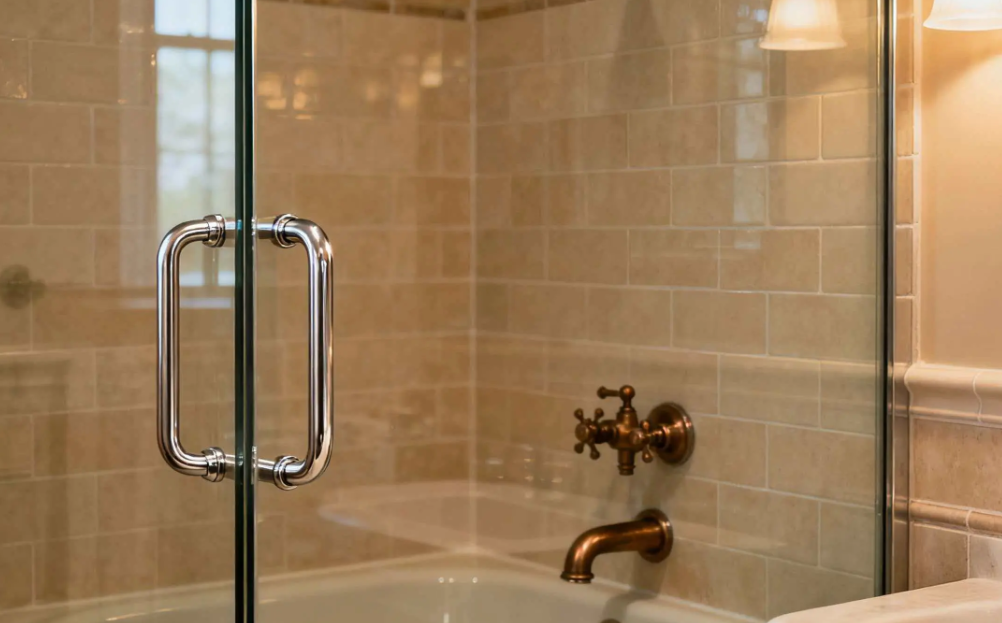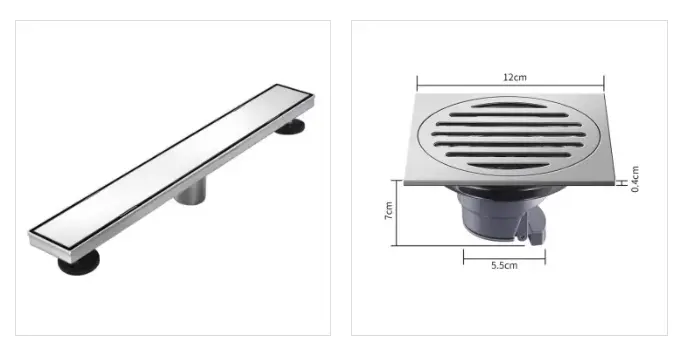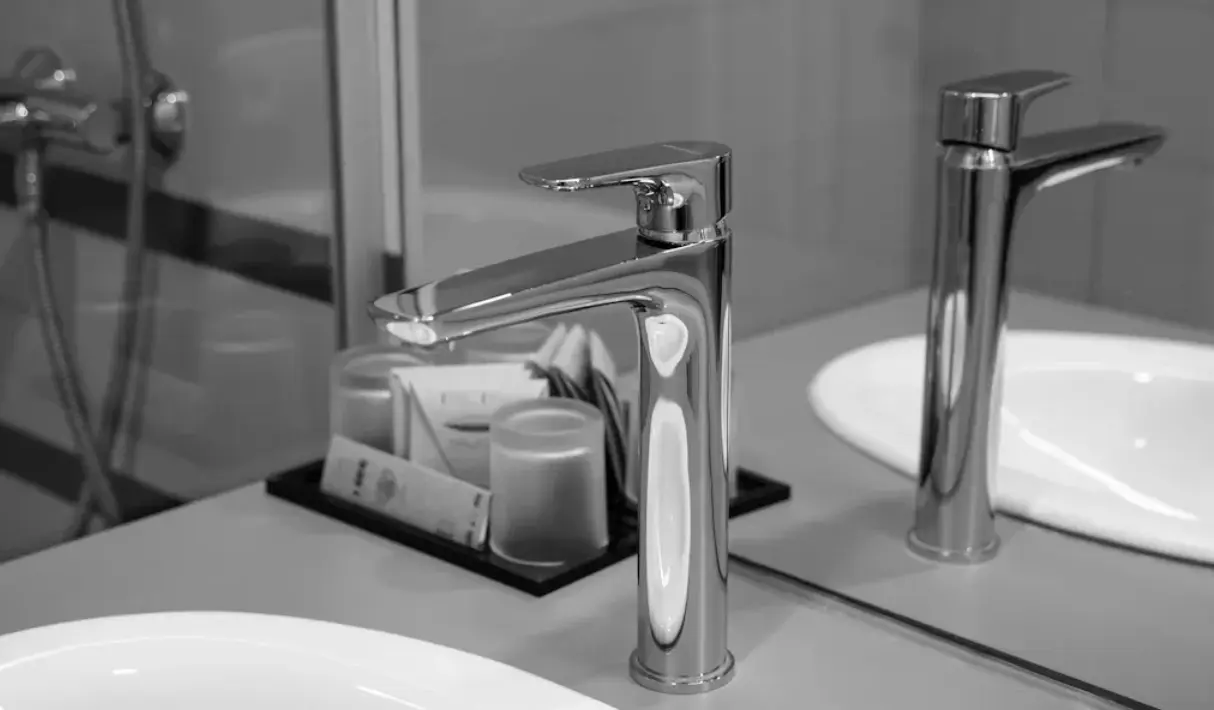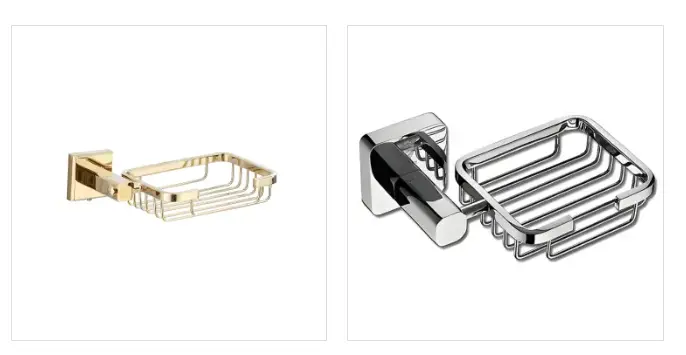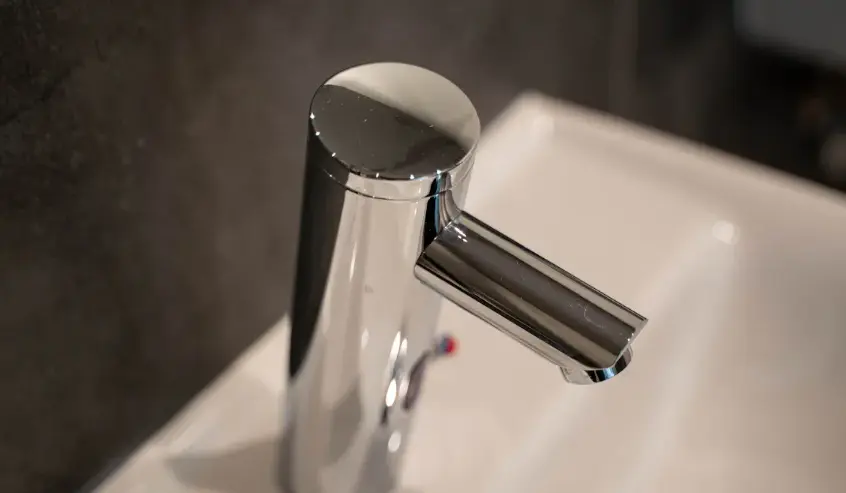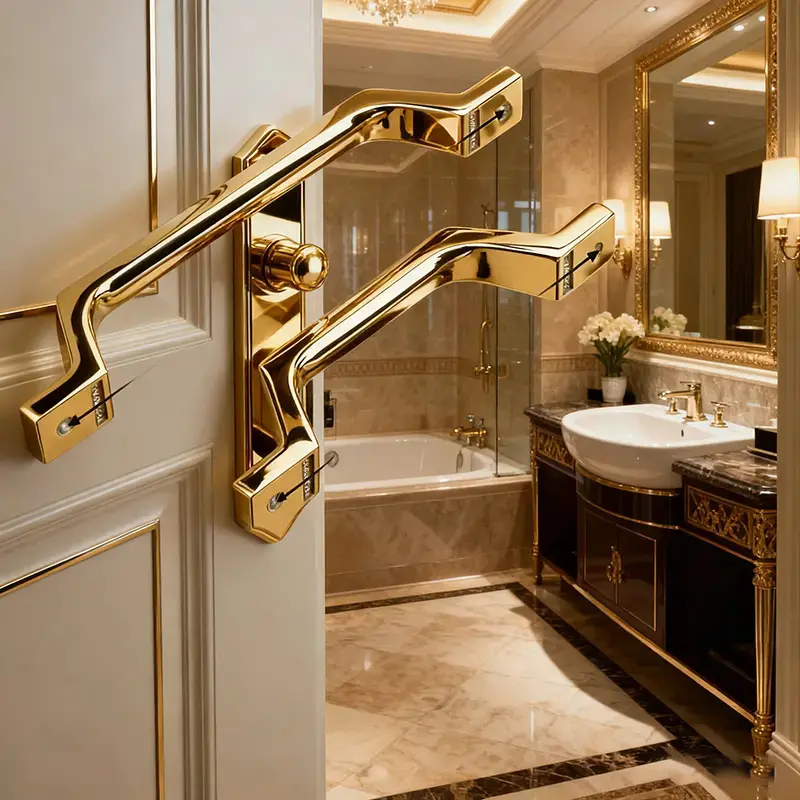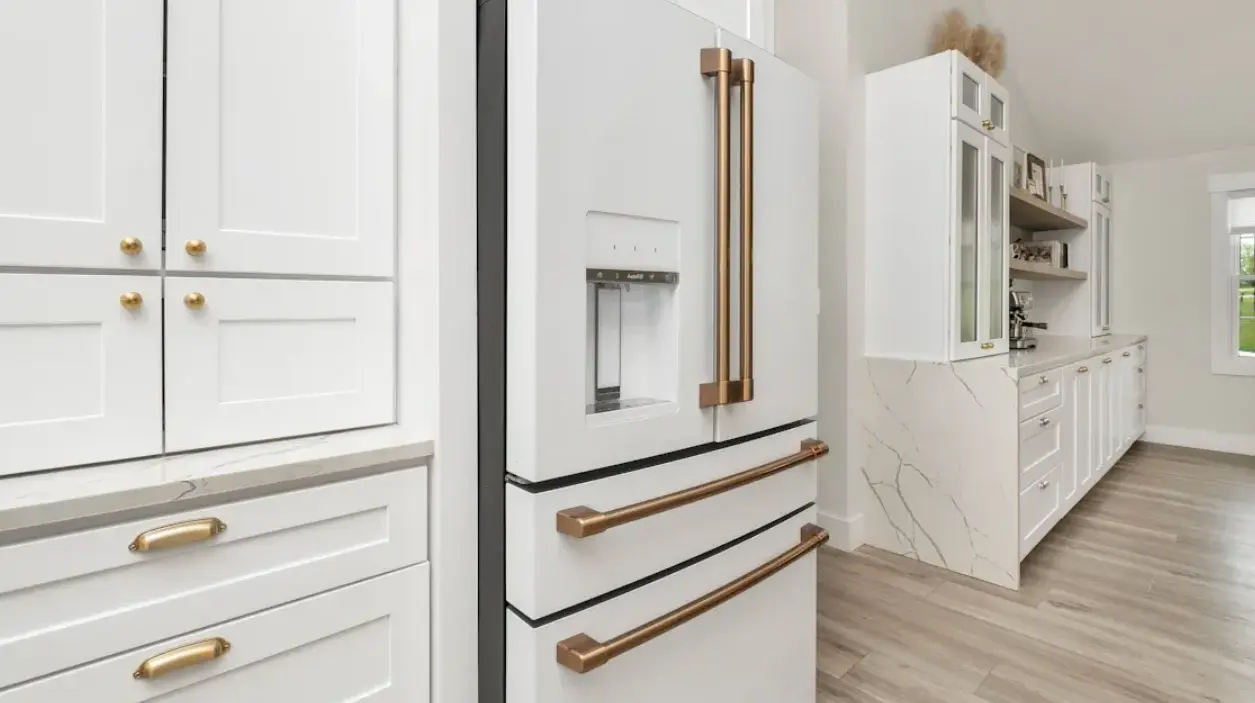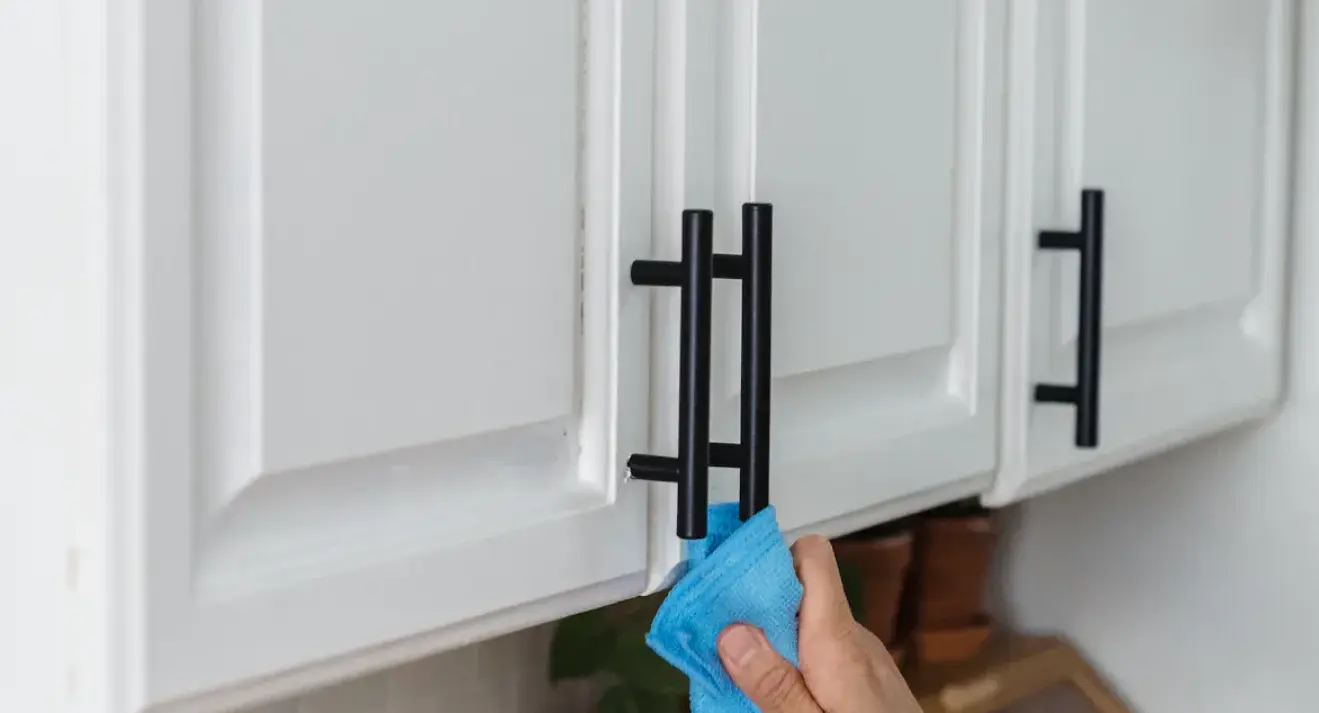Smart Hotel Door Handle Choices for Lasting Quality
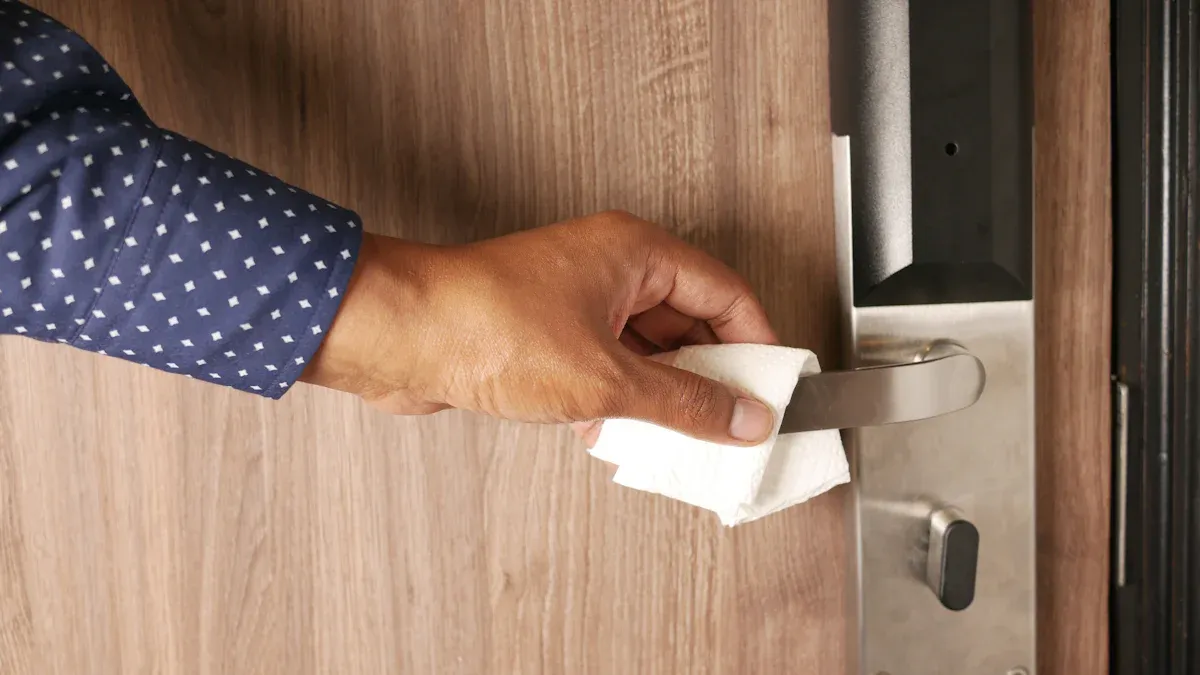
Selecting the right Door Handles significantly impacts hotel operations and guest satisfaction. Durable Door Handles play a critical role in enhancing security and reducing long-term costs. Investing in qualityDoor Handle solutions ensures a seamless guest experience. For example, choosing robust OEM Factory Zinc Alloy Pull Door Handle Hardware prevents frequent replacements. High-quality Door&Window Handles contribute to a hotel's overall aesthetic and functionality, directly reflecting on guest perception.
Key Takeaways
- Choose strong Door Handles for hotels. They last longer and keep guests safe.
- Hotel Door Handles get used a lot. They need to be tough and secure for many people.
- Good materials like stainless steelmake Door Handles last. They fight rust and wear.
- Look for Door Handles with high ANSI/BHMA ratings. This means they are very strong and safe.
- Smart Door Handles use key cards or phones. They make check-in easy and improve security.
- Install Door Handles correctly. This helps them work well and last a long time.
- Clean Door Handles with the right products. Avoid harsh chemicals to keep them looking good.
Understanding the Unique Demands on Hotel Door Handles

Hotel Door Handles face distinct operational challenges. They endure significantly more use and scrutiny than residential fixtures. This constant interaction necessitates a higher standard of durability and functionality.
High Traffic and Constant Operation of Hotel Door Handles
Daily Guest and Staff Interactions
Many individuals interact with hotel Door Handles every day. Guests, cleaning staff, maintenance personnel, and other hotel employees frequently touch these fixtures. This constant contact means handles must withstand continuous physical engagement. Each interaction contributes to wear and tear, demanding robust construction.
Frequent Opening and Closing Cycles
Hotel doors open and close numerous times throughout a single day. This cycle repeats daily, placing immense mechanical stress on the internal components of each Door Handle. Unlike a home, a hotel room door might open dozens of times, leading to accelerated wear and tear. This high frequency of use requires mechanisms designed for extreme longevity.
Critical Security Requirements for Hotel Door Handles
Protecting Guest Privacy and Belongings
Secure door handles are essential for guest peace of mind. They protect personal privacy and valuable belongings. However, security vulnerabilities can exist. For example, a significant issue known as 'Unsaflok' affected Saflok brand electronic RFID locks. This vulnerability allowed attackers to unlock all rooms in a hotel using forged keycards. Attackers could read one keycard from the property, even an expired one. They then created forged keycards using any MIFARE Classic card. Commercially available tools like Proxmark3, Flipper Zero, or an NFC-capable Android phone facilitated this process. The deadbolt did not protect against these forged keycards because Saflok locks could retract the deadbolt via software. This issue impacted over 3 million doors across more than 13,000 properties in 131 countries. It affected Saflok MT, Quantum Series, RT Series, Saffire Series, and Confidant Series locks using System 6000 or Ambiance management software.
| Affected Lock Series | Management Software | Number of Doors Affected | Number of Properties Affected | Countries Affected |
|---|---|---|---|---|
| Saflok MT, Quantum Series, RT Series, Saffire Series, Confidant Series | System 6000 or Ambiance | Over 3 million | Over 13,000 | 131 |
Securing Common Areas and Back-of-House
Beyond guest rooms, hotel door handles secure common areas. These include fitness centers, swimming pools, and conference rooms. They also protect back-of-house areas, restricting access to authorized personnel only. Robust security in these zones prevents unauthorized entry and maintains operational integrity. Every Door Handle in these areas must offer reliable protection.
Maintaining Aesthetic and Brand Consistency with Hotel Door Handles
Visual Impact on Guest Perception
Door handles are often the first physical touchpoint guests have with their room. Their appearance directly influences guest perception of quality and attention to detail. A well-designed, pristine handle enhances the guest experience. Conversely, a worn or mismatched handle can detract from it.
Upholding Hotel Design Standards
Hotels invest heavily in their interior design and brand identity. Door handles must align with these established standards. They serve as subtle yet important design elements. Consistent style and finish across all handles reinforce the hotel's aesthetic vision. This consistency helps maintain a cohesive and professional image.
Environmental Exposure and Wear Factors for Hotel Door Handles
Hotel door handles operate in diverse environments. These conditions significantly impact their longevity and appearance. Understanding these factors helps hotels select the most resilient products.
Humidity and Temperature Fluctuations
Hotels often experience varying environmental conditions. Coastal properties face high humidity and salt-laden air. These elements accelerate corrosion and rust on metal components. Inland hotels might encounter dry air or significant temperature swings between seasons. Such fluctuations cause materials to expand and contract. This constant movement stresses internal mechanisms and external finishes. Over time, this stress can loosen parts or crack protective coatings. Materials like stainless steel or marine-grade brass offer superior resistance to these environmental challenges. They maintain their structural integrity and aesthetic appeal longer.
Impact of Cleaning Agents and Sanitizers
Hotels prioritize hygiene, especially in today's world. Staff regularly clean and sanitize all high-touch surfaces, including door handles. Many cleaning agents contain harsh chemicals. These chemicals can degrade finishes on less durable materials. They might strip protective coatings, leaving the underlying metal exposed. Abrasive cleaners cause scratches and dull surfaces. Sanitizers, often alcohol-based, can dry out or discolor certain materials over time. Hotels must choose handles with finishes specifically designed to withstand these rigorous cleaning protocols. For example, PVD (Physical Vapor Deposition) finishes offer excellent resistance to chemical corrosion and abrasion. This ensures the handles retain their appearance and functionality despite frequent disinfection. Selecting the right Door Handle finish minimizes maintenance and replacement costs.
Essential Factors for Assessing Door Handle Durability
Selecting durable door handles requires careful consideration of several key factors. These factors ensure the handles withstand the rigors of commercial use and maintain their appearance and functionality over time.
Material Selection for Robustness in Commercial Door Handles
The material of a door handle directly impacts its strength, resistance to wear, and overall lifespan. Different materials offer distinct advantages for commercial applications.
Stainless Steel: Corrosion and Wear Resistance
Stainless steel stands out for its exceptional durability. Stainless steel door handles are highly valued for their long-term corrosion resistance. They effectively withstand moisture, salt, and other corrosive substances. This characteristic makes them ideal for diverse environments. These include industrial settings exposed to chemicals, fitness centers with high humidity and sweat, and public restrooms. Their inherent resistance to corrosion also contributes to their durability and low maintenance requirements. This leads to a lower overall cost of ownership despite a potentially higher initial investment. Stainless steel maintains its structural integrity and aesthetic appeal even under harsh conditions.
Brass and Bronze: Classic Durability and Patina
Brass and bronze offer a classic aesthetic combined with significant durability. These alloys are naturally antimicrobial, which is a valuable property in high-traffic environments like hotels. They develop a unique patina over time, adding character and warmth. While they resist corrosion well, especially in dry environments, they may require more frequent polishing to maintain a bright finish. However, many hotels embrace the aged look of a natural patina.
Zinc Alloy: Cost-Effectiveness and Design Versatility
Zinc alloy provides a cost-effective solution with excellent design versatility. Manufacturers can easily cast zinc into complex shapes, allowing for intricate and unique handle designs. It offers good strength for its weight. However, zinc alloy may not match the extreme durability or corrosion resistance of stainless steel or brass in the most demanding environments. Its finish quality becomes crucial for long-term performance.
Aluminum: Lightweight Durability and Corrosion Resistance
Aluminum is a lightweight yet durable material. It naturally resists corrosion due to its passive oxide layer. This makes it suitable for many commercial applications. Aluminum handles are often anodized or powder-coated to enhance their surface hardness and aesthetic appeal. They offer a good balance of strength, weight, and corrosion resistance, making them a practical choice for various hotel areas.
Solid Construction Versus Hollow Components
The internal construction of a door handle significantly affects its durability. Solid components offer superior strength and resistance to bending or breaking compared to hollow ones. While hollow handles may be lighter and less expensive, they are more prone to damage from impact or continuous stress. Solid construction ensures a longer lifespan and greater reliability, especially in high-traffic hotel settings.
Finish Quality and Longevity of Commercial Door Handles
The finish on a door handle protects the underlying material and contributes to its aesthetic appeal. A high-quality finish resists wear, tarnishing, and fading, ensuring the handle looks good for years.
PVD (Physical Vapor Deposition): Superior Scratch Resistance
Physical Vapor Deposition (PVD) coatings create a thin, ultra-hard layer bonded to stainless steel or brass. This process results in unparalleled durability. The extremely strong PVD top layer makes door handles highly resistant to scratches, abrasions, and fading. This ensures their original beauty for years and leads to increased quality and a longer lifespan. PVD-coated hardware is exceptionally resistant to corrosion, making it suitable for various environments. This includes coastal areas with UV rays and salty air, thus extending its lifespan. An architect in Miami once specified bronze-toned PVD panels for a beachfront condominium. Ten years later, the surface still holds its metallic depth, while nearby untreated aluminum panels faded dramatically. This contrast demonstrates why developers favor advanced finishes when building near the ocean. PVD finishes also require less maintenance, further contributing to an extended lifespan.
| Material Type | Typical Indoor Lifespan | Typical Outdoor Lifespan | Resistance to Fading & Scratches |
|---|---|---|---|
| Untreated Stainless Steel | 8–12 years | 5–8 years | Moderate |
| PVD Stainless Steel (Coated Surface) | 20–25 years | 12–18 years | High |
| Painted Aluminum Panels | N/A | 5–7 years | N/A |
Polished Chrome: Aesthetic Appeal and Maintenance
Polished chrome provides a smooth, reflective surface. It offers resistance to tarnish and mild corrosion. However, it is less durable than stainless steel in harsh environments and vulnerable to chipping. Polished chrome requires regular cleaning to maintain its shine and prevent water spots or fingerprints from dulling its appearance.
Satin Nickel: Modern Look and Fingerprint Resistance
Satin nickel offers a modern, muted aesthetic. Its brushed finish effectively hides fingerprints and minor smudges, making it a popular choice for high-traffic areas. It provides good resistance to corrosion and wear, offering a balance between aesthetics and practicality.
Resistance to Tarnishing and Fading
A durable finish must resist tarnishing and fading. Tarnishing occurs when a metal reacts with air or moisture, causing discoloration. Fading happens when UV light or cleaning agents degrade the finish's color. High-quality finishes, especially PVD, maintain their original appearance longer, reducing the need for frequent replacement or refinishing.
Mechanical Components and Internal Mechanisms of Durable Door Handles
The internal workings of a door handle are as important as its external appearance. Robust mechanical components ensure smooth operation and long-term reliability.
Robust Springs and Spindles
Springs and spindles are critical for the handle's return action and connection to the latch. Weak or poorly constructed springs can lead to a sagging handle or one that does not return to its original position. Spindles must withstand constant rotational force. High-quality materials and precise engineering prevent premature wear and ensure consistent operation.
High-Quality Locking Mechanisms
The locking mechanism is the heart of the door's security. It must operate smoothly and reliably every time. Common failure points in commercial door handles include broken locks, which can manifest as a jammed mechanism or a key that won't turn. Other issues include difficulty locking or unlocking, loose handles, inoperable handles or locks, difficulty operating the handle, and sticking or jamming. A high-quality locking mechanism uses durable components and precise tolerances to prevent these common problems.
Importance of ANSI/BHMA Grade Ratings
ANSI/BHMA Grade ratings provide an objective measure of a door handle's durability and security. ANSI/BHMA Grade 1 certification signifies the highest performance level for commercial door handles. This designation is achieved through a series of rigorous tests, which can include 15 to 20 different assessments. For example, a Grade 1 mortise lock must successfully endure 1,000,000 cycles in a cycle test, demonstrating its superior durability and reliability in actual usage. Products receiving ANSI/BHMA Grade 1 certification offer the highest level of strength and security. This certification involves numerous tests, which may include:
- Tension loading
- Impact/force
- Deadbolt torque
- Retraction deadbolt
- Pound exertion
- Bolt or latch strength
- Security
- Finish durability
| Test Category | Specific Requirement for Grade 1 |
|---|---|
| Latch Force | Maximum 4.5 pounds force to latch easily |
| Latch Retraction (Lever) | Maximum 28 inch-pounds rotational force |
| Cycle Test | 1,000,000 cycles |
| Strength Test (Lever) | Withstand 360 pounds applied on top of the lever |
| Security Test (Ram Impact) | Withstand 75 ft.-lbf (100 J) for 10 blows |
| Material Evaluation (Impact to Rose) | Withstand 0.075 inches (1.9 mm) impact |
| Finish Tests | Must meet the same requirements as other grades |
These ratings help hotels choose products proven to withstand demanding commercial environments.
Design and Ergonomics for Commercial Door Handle Use
Ergonomic design significantly influences the longevity and user experience of commercial door handles. Thoughtful design reduces stress on both the hardware and the user. This approach ensures handles remain functional and comfortable through countless interactions.
Minimizing Stress Points in Design
Designers carefully craft commercial door handles to minimize stress points. This prevents premature wear and enhances user comfort. Handles feature curves that naturally follow the palm's arc, avoiding sharp edges or corners. Rounded, convex shapes minimize localized pressure and friction on the hand. The optimal diameter for a handle typically ranges from 30 to 50 mm, with an ideal around 41 mm. Lengths between 100 and 150 mm allow for comfortable grasping without excessive squeezing. Designers also ensure additional clearance for users wearing gloves. Materials with appropriate hardness and elasticity, along with surface textures that provide slip resistance, further reduce stress. Soft composite materials or coatings, such as rubber or thermoplastic elastomers, with fine-grained textures, enhance grip comfort and friction.
Comfortable Operation for Frequent Use
Comfortable operation is paramount for door handles in high-traffic hotel environments. Ergonomic design principles ensure ease of use for all guests and staff. Contoured shapes support natural hand posture, reducing awkward angles and excessive pressure on joints. The grip size is crucial; designers create handles to fit a wide range of hand sizes. This prevents overstretching or cramping during use. Material selection also plays a vital role. Non-slip, cushioned, and high-strength materials contribute to both comfort and durability. Textured surfaces enhance grip stability, which is especially important in challenging environments like wet areas or kitchens. Proper weight distribution minimizes pressure points, enhances control, and reduces muscle fatigue for the user. For instance, soft finishes like low-density polyethylene (LDPE) offer comfort. Thermoplastic elastomer (TPE) provides a tactile, soft-touch grip, further reducing stress on hands. Non-slip features, such as grooves, fluted grips, and knurled patterns on knobs and handles, ensure a secure grip, particularly when turning or in environments with contaminants.
Lever vs. Knob Durability Considerations
The choice between lever handles and knobs involves distinct durability considerations for commercial settings. Lever handles generally offer superior accessibility, complying with ADA requirements. Their design often distributes force more effectively across the mechanism, potentially leading to greater longevity under frequent use. Levers typically require less grip strength to operate, reducing strain on the internal components over time. However, levers can sometimes snag clothing or bags if not properly designed. Knobs, while compact, require a twisting motion and more grip strength. This can place different types of stress on their internal mechanisms. A well-engineered knob with robust internal components can be very durable. However, the constant twisting action might wear down certain parts faster than the simpler push-down action of a lever. For high-traffic areas, levers often prove more durable due to their inherent mechanical advantage and ease of operation, which translates to less forceful user interaction.
Strategic Selection for Hotel Operators: Choosing the Right Door Handle
Hotel operators must make informed decisions when selecting door handles. Strategic choices ensure long-term performance, guest satisfaction, and operational efficiency. This involves careful consideration of industry standards, manufacturer reliability, and maintenance needs.
Prioritizing Industry Standards and Certifications for Door Handles
Adhering to industry standards and certifications is crucial. These guidelines ensure safety, accessibility, and durability for all hotel door hardware.
ANSI/BHMA Grade 1 and 2 for Commercial Applications
ANSI/BHMA Grade ratings provide a clear benchmark for commercial door hardware. Grade 1 certification represents the highest level of performance. It signifies superior durability and reliability. Products achieve this designation through rigorous testing. These tests can include 15 to 20 different assessments. For example, a Grade 1 mortise lock must successfully endure 1,000,000 cycles in a cycle test. This demonstrates its ability to withstand heavy use. Grade 2 offers a strong performance level suitable for many commercial applications. Hotels should prioritize these grades to ensure their door handles meet demanding operational requirements.
Fire Rating Compliance
Fire rating compliance is a non-negotiable safety requirement for hotel door handles. Fire-rated doors and their hardware prevent the spread of fire and smoke. They provide crucial time for evacuation. Handles on fire-rated doors must maintain their integrity and functionality during a fire. This ensures occupants can exit safely. Hotels must verify that all door handles in fire-rated assemblies carry the appropriate fire safety certifications.
ADA Accessibility Requirements
Accessibility is a legal and ethical imperative for hotels. The Americans with Disabilities Act (ADA) sets specific requirements for door hardware. These ensure ease of use for all guests, including those with disabilities. Door hardware for accessible spaces must be usable with one hand. It should not require tight grasping, pinching, or twisting of the wrist. Lever-operated mechanisms, push-type mechanisms, and U-shaped handles are suitable. The operating force for door hardware must not exceed five pounds. All hardware must be installed between a minimum of 34 inches and a maximum of 48 inches above the finished floor. Security latches or bolts on hall doors must also meet these one-hand operation and height requirements.
Evaluating Manufacturer Reputation and Warranty for Door Handles
The manufacturer's reputation and warranty terms significantly impact a hotel's long-term investment. Hotels should choose wisely.
Choosing Established and Trusted Brands
Selecting established and trusted brands offers several advantages. Reputable manufacturers typically use higher quality materials and superior engineering. They also provide better customer support and product availability. Their experience often translates into more reliable and durable products. This reduces the likelihood of premature failure and costly replacements.
Understanding Warranty Coverage and Terms
A comprehensive warranty protects a hotel's investment. Hotels must thoroughly understand the warranty coverage and terms before purchase. Warranty periods can vary significantly between manufacturers. For example, Rockwell Security Inc. offers a 5-year warranty on its products. Tell Manufacturing provides a Lifetime Limited Warranty. Hotels should look for warranties that cover defects in materials and workmanship for an extended period. A strong warranty demonstrates the manufacturer's confidence in their product's durability.
| Manufacturer | Warranty Period |
|---|---|
| Rockwell Security Inc. | 5 years |
| Tell Manufacturing | Lifetime Limited Warranty |
Considering Maintenance and Cleaning Protocols for Door Handles
Effective maintenance and cleaning protocols are essential for extending the lifespan and appearance of hotel door handles. Hotels must choose handles that can withstand regular cleaning.
Ease of Cleaning and Disinfection
Hotels require door handles that are easy to clean and disinfect. Smooth surfaces with minimal crevices prevent dirt and germ accumulation. This simplifies the cleaning process for staff. Handles made from materials like stainless steel or those with PVD finishes are often easier to maintain. They resist staining and corrosion from cleaning agents.
Resistance to Common Hotel Cleaning Products
The cleaning agents used in hotels can be harsh. Door handles must resist damage from these chemicals. A mild, non-abrasive, antibacterial detergent and water solution is recommended for general cleaning. For disinfection, a 70% isopropyl alcohol solution can be used. Staff should dampen a cloth, wipe the handle, and allow it to air dry. Hotels must avoid high concentrations of bleach solutions, as they can cause metal corrosion. They should also not use high alkaline cleaners like sodium carbonate, sodium hydroxide, and ammonia. These can damage metals and plastics. Cleaners typically used on bathroom fixtures and industrial solvents will damage protective finishes. Abrasive products like scouring pads or steel wool should never be used. Staff should also avoid spraying cleaning solutions directly onto the hardware. For specific materials, a commercial copper or brass cleaner works for copper or brass. A soft cloth and soapy water clean pewter.
Balancing Initial Cost with Long-Term Value of Door Handles
Hotel operators must look beyond the initial purchase price when selecting hardware. A strategic approach considers the total cost of ownership and the return on investment. This perspective ensures lasting quality and financial prudence.
Total Cost of Ownership Analysis
Total Cost of Ownership (TCO) provides a comprehensive view of an asset's true expense over its lifespan. For hotel hardware, TCO includes more than just the upfront purchase price. It encompasses installation costs, routine maintenance, unexpected repairs, and eventual replacement expenses. It also accounts for the operational downtime associated with these issues.
Tip: A low initial price often masks higher long-term costs. Cheaper hardware typically requires more frequent repairs and replacements. This leads to increased labor costs for maintenance staff. It also causes disruptions for guests.
Consider a scenario where a hotel chooses inexpensive hardware. These items might fail more often. Each failure incurs a repair cost, including parts and labor. If a repair takes too long, the hotel might need to move a guest, resulting in lost revenue or compensation. Over several years, these cumulative costs can far exceed the savings from the initial low purchase price. Quality hardware, while more expensive initially, offers greater reliability. It reduces the frequency of repairs and replacements. This minimizes operational interruptions and saves money in the long run.
ROI of Durable Handle Investments
Investing in durable hardware yields a significant return on investment (ROI). This ROI extends beyond simple cost savings. It positively impacts guest satisfaction, operational efficiency, and the hotel's brand image.
- Reduced Maintenance Expenses: Durable hardware breaks less often. This directly lowers repair costs and reduces the need for maintenance staff to spend time fixing handles. Staff can then focus on more proactive tasks.
- Enhanced Guest Satisfaction: Guests appreciate functional and aesthetically pleasing hardware. A broken or malfunctioning item creates frustration and reflects poorly on the hotel. Reliable hardware contributes to a seamless and positive guest experience. This can lead to better reviews and repeat business.
- Improved Security: High-quality, durable hardware often incorporates superior security features. This protects guests' belongings and ensures the safety of common areas. Enhanced security reduces liability risks for the hotel.
- Positive Brand Image: Every detail in a hotel contributes to its overall brand perception. Well-maintained, high-quality hardware reinforces an image of luxury, attention to detail, and professionalism. This strengthens the hotel's reputation in a competitive market.
- Operational Efficiency: Fewer hardware failures mean less operational disruption. Housekeeping staff can clean rooms without waiting for repairs. Front desk staff handle fewer complaints about faulty items. This streamlines daily operations.
The initial outlay for robust hardware pays off through these tangible and intangible benefits. Hotels gain a more reliable operation, happier guests, and a stronger financial position over time.
Maximizing Lifespan Through Proper Door Handle Installation and Care
Even the most durable hotel hardware requires correct installation and consistent maintenance. These practices significantly extend the lifespan of door handles. They ensure optimal performance and guest satisfaction for many years.
Importance of Professional Door Handle Installation
Professional installation forms the foundation for a door handle's long-term reliability. It prevents many common issues that lead to premature wear and failure.
Correct Alignment and Functionality
Proper installation ensures correct alignment of all components. This includes the handle, latch, and strike plate. When installers align these parts precisely, the handle operates smoothly. It engages the locking mechanism without unnecessary friction or strain. Correct alignment prevents grinding, sticking, or excessive force during operation. This preserves the internal mechanisms and external finish.
Preventing Premature Wear from Improper Setup
Improper installation can severely compromise a door handle's durability. It introduces stress points and accelerates wear. For example, installers might not align the handle's positioning point with the lock mortise's positioning arrow. This causes misalignment. Sometimes, the handle's spindle is not fully inserted into the square hole of the door handle. A missing spring in the door handle's square hole can also cause the spindle to retract improperly. Incorrect installation of the lock strike prevents the latch bolt from extending or causes it to be inflexible. These errors lead to increased friction, component fatigue, and eventual failure. Professional installers possess the expertise to avoid these pitfalls. They ensure each handle functions as designed from day one.
Regular Inspection and Minor Adjustments for Door Handles
Proactive maintenance through regular inspections helps identify and address minor issues before they escalate. This approach saves hotels money and prevents guest inconvenience.
Routine Checks for Loose Screws
Loose screws are a common issue in high-traffic environments. They can affect the stability and functionality of a door handle. Maintenance staff should routinely check all visible screws on the handle and escutcheon plates. Tightening these screws prevents wobbling and ensures the handle remains securely attached. This simple task can prevent more significant damage to the handle's internal components.
Identifying Early Signs of Wear
Regular inspections allow staff to identify early signs of wear. These include minor scratches, discoloration, or slight stiffness in operation. Addressing these issues promptly can prevent them from worsening. For instance, a slightly stiff mechanism might only need lubrication. Ignoring it could lead to a complete breakdown. Early detection and intervention extend the handle's operational life.
Appropriate Cleaning and Maintenance Practices for Door Handles
Cleaning and maintenance protocols must align with the handle's material and technology. This preserves both its appearance and functionality.
Using Manufacturer-Recommended Cleaning Agents
Hotels should always use cleaning agents recommended by the door handle manufacturer. These products are specifically formulated to clean the handle's finish without causing damage. For electronic components of smart handles, specific best practices apply. Staff should wipe the lock body and touchscreen with warm water using a clean, soft cloth. A non-abrasive mild household detergent and soft cloth can clean dirt and debris from the lock body. A cotton bud helps with difficult areas. Always rinse any applied soap with warm, clean, potable water and a soft cloth. Finally, use a soft cloth to dry and polish the lock body and touchscreen.
Avoiding Abrasive Materials and Harsh Chemicals
It is crucial to avoid abrasive cleaners, high alkaline cleaners, or alcohol on door handles. These substances can strip protective finishes or corrode metal. Staff should never use any detergent or cleaner directly on the touchscreen. Leaving cleaners on the lock body for extended periods can also cause damage. Applying cleaners in direct sunlight or at elevated temperatures should also be avoided. Furthermore, never use abrasive scouring pads, scrapers, squeegees, or razors to remove dirt or debris. These practices prevent damage and preserve the handle's aesthetic and functional integrity.
Advanced Considerations for Hotel Door Handle Selection
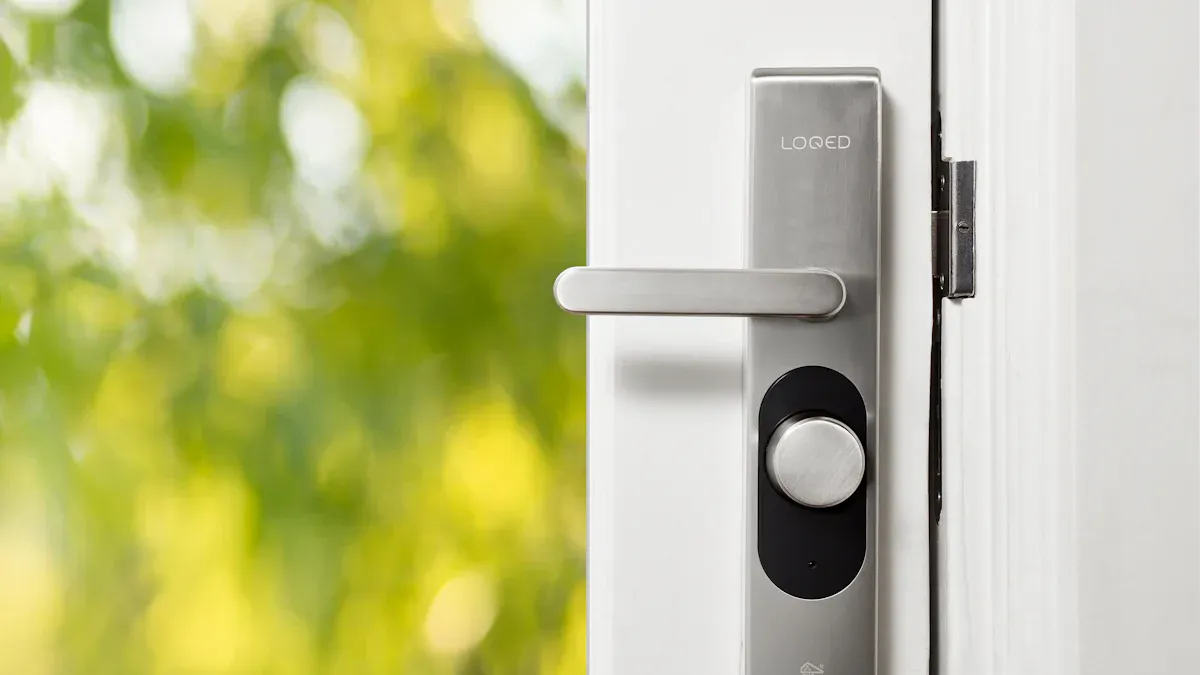
Hotels increasingly look beyond basic functionality when choosing door hardware. Advanced considerations now include smart technology integration, customization, and sustainability. These factors enhance guest experience, reinforce brand identity, and support environmental goals.
Smart Technology Integration in Door Handles
Modern hotels embrace technology to streamline operations and elevate guest stays. Smart door handles play a crucial role in this digital transformation.
Key Card and RFID Compatibility
Key card and RFID compatibility remain standard for hotel access. These systems offer convenience and security. Hotels can manage access efficiently. Cloud-based management centralizes control and monitors all locks across properties in real-time. This allows for faster key encoding and eliminates issues with on-premises systems. Advanced analytics tools provide deeper insights into guest behavior and facility usage. This drives data-driven decisions to optimize operations.
Mobile Access Solutions
Mobile access solutions represent a significant advancement. Guests use smartphones for room access. Innovations like Apple Wallet Key offer seamless integration. This allows guests to bypass the front desk. The success of digital keys relies on a unified experience. It avoids multiple apps or verification steps. Mobile solutions enable personalized guest experiences. Staff access full guest profiles, including preferences and history. This helps predict behavior and offer tailored services. Guests manage their preferences in real-time. They personalize their itinerary, leading to 'zero disappointment' experiences.
As the June AHLA survey states, 'They (guests) are tech-savvy and expect properties to provide them with tech-based options that allow them to take more control over their stay and customize it based on their preferences.'
Mobile check-in allows for quicker check-outs. This reduces front desk bottlenecks and improves guest flow. Contactless check-in and mobile key technology reduce the need for front desk staff. This increases operational efficiency. Remote access management allows operators to manage properties from anywhere using mobile apps or web platforms.
Customization and Branding Opportunities with Door Handles
Door handles offer unique opportunities for hotels to reinforce their brand and aesthetic.
Bespoke Designs for Unique Hotel Aesthetics
Hotels can commission bespoke designs for their door handles. This creates a unique aesthetic. Custom handles reflect the hotel's architectural style and interior design. They contribute to a cohesive and luxurious atmosphere. This attention to detail enhances the guest's perception of quality.
Incorporating Hotel Logos or Motifs
Incorporating hotel logos or specific motifs onto door handles further strengthens branding. This subtle branding reinforces the hotel's identity. It creates a memorable impression on guests. Customization options range from engraved logos to unique shapes and finishes.
Sustainability and Eco-Friendly Door Handle Options
Environmental responsibility is a growing concern for hotels. Selecting sustainable door handle options aligns with green initiatives.
Recycled Materials and Manufacturing Processes
Many manufacturers now prioritize recycled materials. For example, 70% of materials used for some products are high-quality recycled stainless steel. Products crafted from brass are often composed entirely of 100% recycled materials. They remain fully recyclable. Using recycled materials like aluminum and glass helps minimize environmental waste. It promotes circularity by repurposing existing materials. This contributes to a sustainable manufacturing process. It utilizes energy-efficient production methods that minimize waste and reduce the carbon footprint.
Energy Efficiency of Electronic Components
Electronic components in smart door handles can also contribute to energy efficiency. Manufacturers design modern smart locks to consume minimal power. Some systems integrate with smart energy management. They adjust lighting or HVAC based on occupancy. This optimizes resource usage.
Common Pitfalls to Avoid When Choosing Hotel Door Handles
Hotel operators often face challenges when selecting hardware. Avoiding common pitfalls ensures long-term success and guest satisfaction.
Underestimating Traffic Volume and Usage Intensity
Hotels experience constant activity. This places immense stress on all fixtures, especially those guests touch frequently.
Selecting Residential-Grade Handles for Commercial Use
Using residential-grade hardware in a hotel is a significant mistake. Residential door hardware is not built for the heavy usage commercial doors experience. It will likely break down quickly, sometimes within a month. Manufacturers may void warranties on residential hardware if it is installed in a commercial environment. This leaves the hotel responsible for frequent replacements. Commercial settings, like hotels, experience high traffic. They demand robust hardware designed for constant use, unlike lighter-duty residential solutions. Commercial spaces also require advanced locking systems for enhanced protection. Residential hardware typically does not provide this. Commercial hardware must adhere to specific regulations, such as ADA standards for accessibility. These standards are less stringent for residential applications.
Ignoring Peak Season Demands
Hotels experience peak seasons with significantly higher occupancy and traffic. Handles must withstand this increased intensity without failure. Ignoring these peak demands leads to accelerated wear and frequent breakdowns during the busiest times. This creates operational headaches and impacts guest experience.
Overlooking Environmental Factors and Their Impact on Door Handles
Environmental conditions greatly influence hardware longevity. Hotels must consider their specific location.
Neglecting Humidity and Salinity in Coastal Areas
Coastal properties face unique challenges. High salinity environments, characterized by salt air and seawater, cause significant corrosive effects on materials. Iron, for instance, rusts and degrades when water combines with carbon dioxide in the air to form carbonic acid. This acid then dissolves the iron, creating a layer of iron oxide or rust. Stainless steel contains chromium, which forms a protective chromium oxide film. However, sodium chloride (salt) in seawater accelerates the corrosive action of carbonic acid. Materials like 316 stainless steel incorporate molybdenum. Molybdenum is particularly effective at slowing down corrosion caused by sodium chloride. This prevents accelerated breakdown.
| Material Component | Role in Corrosion Resistance |
|---|---|
| Iron | Base alloy, susceptible to rust and degradation when exposed to carbonic acid. |
| Chromium | Forms a protective, passive chromium oxide film when exposed to oxygen, sealing the metal surface and preventing iron oxidation. |
| Nickel | Supports chromium oxide by enabling it to rebuild and self-heal if damaged, helping it rebind with oxygen. |
| Molybdenum | Particularly effective in 316 stainless steel at preventing corrosion caused by sodium chloride (salt) in seawater, slowing down the corrosive effect of carbonic acid. |
Disregarding Chemical Exposure from Cleaning
Hotels use various cleaning agents and sanitizers. These chemicals can degrade finishes and materials over time. Choosing hardware resistant to common hotel cleaning products is essential. Otherwise, finishes will tarnish, fade, or corrode prematurely.
Prioritizing Low Initial Cost Over Long-Term Value of Door Handles
Focusing solely on the upfront price often leads to greater expenses later. Hotels must consider the total cost of ownership.
The Hidden Costs of Frequent Replacements
Low-cost hardware often means lower quality. This results in frequent breakdowns and replacements. Each replacement incurs costs for parts, labor, and potential operational downtime. These hidden costs quickly outweigh any initial savings. Investing in durable hardware reduces these recurring expenses.
Impact on Guest Experience Due to Malfunctioning Handles
Malfunctioning hardware directly impacts guest satisfaction. Guests who have unsatisfactory experiences are inclined to post negative reviews online. This significantly damages a hotel's reputation and online presence. People are more likely to share negative experiences than positive ones. Malfunctioning handles, as high-touch areas, are prone to rapid deterioration. This leads to frequent breakdowns. These breakdowns contribute to negative guest experiences. Poor maintenance, including issues like malfunctioning hardware, can result in guest complaints. Prioritizing quality ensures a seamless and positive guest experience.
Strategic investment in durable commercial door handles is paramount for hotel success. Quality door handles directly enhance guest satisfaction, security, and operational efficiency. Hotels must focus on robust materials, superior finishes, and reliable mechanisms for lasting performance. Smart selection strategies lead to significant long-term savings and a positive brand image. Ensure your hotel's door handles contribute positively to its reputation for years to come.
FAQ
Why are durable door handles crucial for hotels?
Durable door handles significantly impact hotel operations and guest satisfaction. They enhance security, reduce long-term maintenance costs, and ensure a seamless guest experience. Quality handles reflect positively on the hotel's brand image and operational efficiency.
Which materials offer the best durability for hotel door handles?
Stainless steel provides excellent corrosion and wear resistance. Brass and bronze offer classic durability with natural antimicrobial properties. Zinc alloy is cost-effective and versatile in design. Aluminum is lightweight and corrosion-resistant. Solid construction generally outperforms hollow components for robustness.
What do ANSI/BHMA Grade ratings signify for commercial door handles?
ANSI/BHMA Grade ratings indicate a door handle's durability and security. Grade 1 represents the highest performance level, suitable for demanding commercial applications. These ratings ensure products meet rigorous testing standards for strength, security, and operational cycles.
How do smart door handles enhance hotel operations?
Smart door handles integrate technology like key card, RFID, and mobile access solutions. They streamline check-in processes, improve security management, and offer personalized guest experiences. Smart systems also provide valuable data for optimizing hotel operations and resource usage.
Why should hotels avoid residential-grade door handles?
Residential-grade handles are not designed for high-traffic commercial use. They break down quickly, leading to frequent replacements and increased costs. Commercial settings require robust hardware built for constant operation and adherence to specific regulations like ADA standards.
What role does professional installation play in handle longevity?
Professional installation ensures correct alignment and functionality of all handle components. This prevents premature wear caused by misalignment, friction, or improper setup. Expert installation maximizes the handle's lifespan and maintains its intended performance from day one.
What cleaning agents should hotels avoid on door handles?
Hotels should avoid abrasive cleaners, high alkaline solutions, and harsh chemicals like concentrated bleach. These substances can strip protective finishes, corrode metal, or damage electronic components. Always use manufacturer-recommended cleaning agents to preserve the handle's appearance and integrity.


